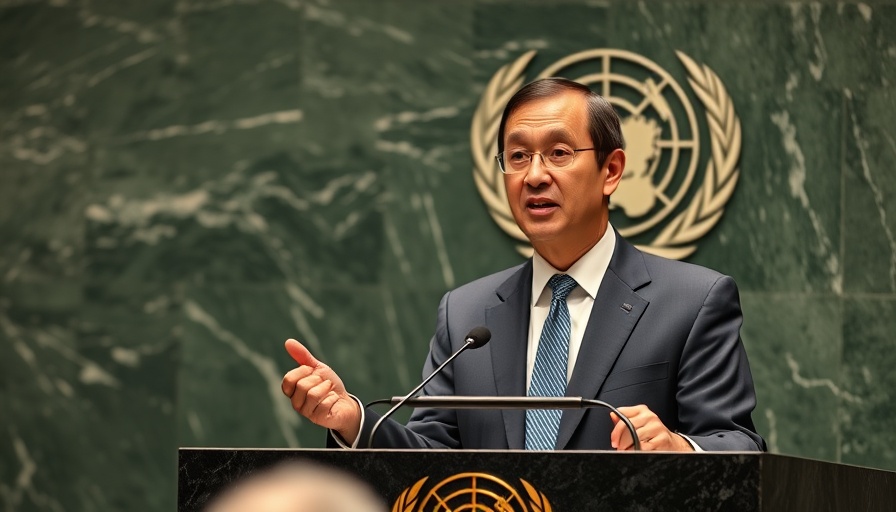
A Deepening Rift: The Legacy of Edgar Lungu and the Controversy Surrounding His Funeral
The recent passing of former Zambian President Edgar Lungu has sparked a contentious feud that highlights the fractures within Zambia's political landscape. Following his death in South Africa, Lungu's family has publicly announced their refusal to allow current President Hakainde Hichilema anywhere near his body, citing explicit instructions left by Lungu himself. This shocking revelation has intensified the already strained relations between Lungu's family and representatives of the government, who are keen on orchestrating a state funeral.
In Lungu funeral row continues as family says President Hichilema not welcome, we will explore the underlying political tensions surrounding Edgar Lungu's legacy and the impact on Zambia's current political discourse.
The Significance of Lungu's Instructions
Lungu, who governed Zambia from 2015 until 2021, left behind a complicated legacy—one fraught with political rivalry and controversies. His family’s declaration that Hichilema, the man who defeated him in the 2021 elections, is unwelcome at his funeral serves as both a personal affront and a political statement. This public rejection underscores a deeper animosity that has characterized Zambian politics, threatening to overshadow the mourning period with intense scrutiny and speculation.
A History of Rivalry: Lungu vs. Hichilema
The tension between Lungu and Hichilema has its roots in a fierce rivalry that spanned multiple election cycles. Hichilema, leader of the United Party for National Development (UPND), previously encountered Lungu in electoral contests five times before claiming victory in 2021. Each encounter was marked by accusations of malfeasance and systemic abuses of power, which have contributed to a politically toxic environment in Zambia. Lungu’s funeral, meant as a solemn remembrance, has shifted into a battleground for public narratives surrounding governance and political legitimacy.
Government's Role in the Funeral Plans
The Zambian government’s offer to repatriate Lungu's body and conduct a state funeral was initially seen as a gesture of respect and dignity. However, the former president's family and his party, the Patriotic Front (PF), have vocally contested this move, alleging that the government aims to dominate the funeral proceedings and, by extension, the political narrative surrounding Lungu’s legacy. This lack of agreement points to a larger narrative concerning who gets to determine the meaning of leadership and governance in Zambia.
The Wider Implications for Zambian Politics
The fallout from this funeral row offers critical insights into the broader implications of political division in Zambia. With the nation grappling with pressing issues such as economic instability and governance challenges, the emphasis on personal vendettas rather than collective national mourning could detract from urgent governmental responsibilities. As the public witnesses this spectacle, one must ponder: What does this say about the underlying state of democracy in Zambia?
Public Sentiment and Civic Engagement
How are ordinary Zambians reacting to this unfolding drama? For many, Lungu’s passing and the quarrel over his funeral cuts deep, eliciting mixed emotions ranging from grief to frustration. This incident not only highlights the persistent divisions within Zambian society but also serves as a reminder of the necessity for civic engagement. Citizens are encouraged to reflect on the political environment created by leaders past and present, and mobilize for a future that prioritizes unity over divisiveness.
Conclusion: Reflecting on Political Legacies
The enduring feud over Edgar Lungu’s funeral symbolizes much more than a personal family conflict—it encapsulates a profound struggle for Zambia’s political identity amid a backdrop of rivalry and dissent. As this situation evolves, it serves as a stark reminder for Zambians to critically assess the leaders they choose and the legacies they leave behind. A future anchored in engagement and dialogue may ultimately pave the way for healing the political rifts that currently define Zambia.
Let's continue to follow these developments closely. Both the legacy of Edgar Lungu and the present political climate demand our attention as responsible citizens. Stay informed and engaged with African current events through reliable sources.
 Add Row
Add Row  Add
Add 




Write A Comment